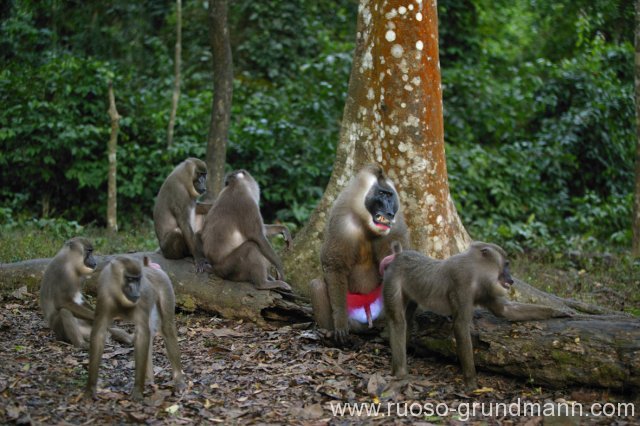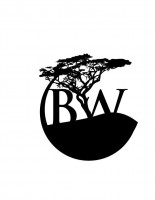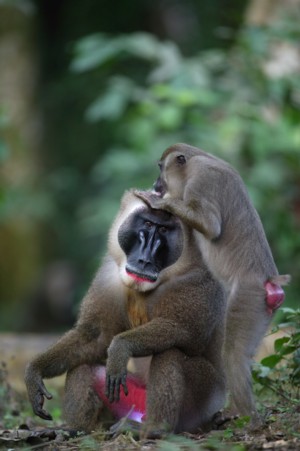One of Africa’s most endangered primate species are drills, and they are listed by the IUCN as the highest conservation priority of all African primates. Not much is known about their behavior or ecology. However, we know that their entire world range only consists of about 40,000 km within the Cross River State, Nigeria. Their population is approximated to be anywhere from 3,000 to 8,000. These animals are another victim of the bushmeat trade, which often leads to young being orphaned when their mothers are killed. These orphaned drills are then taken into captivity.
 Photo credit: Cyril Ruoso/Pandrillus
Photo credit: Cyril Ruoso/Pandrillus
Pandrillus was part of a landmark achievement in 2003 when two adolescent female gorillas were smuggled into Nigeria from Cameroon and later seized by government authorities. The two governments collaborated in the protection of wildlife smuggling and coordination on environmental issues. Nigeria is sadly a large center for wildlife trafficking, and Pandrillus works with law enforcement to try to reduce such activities. Pandrillus also played a vital role in the permanent closure of the Calabar Zoo, removing its last captive animal and transporting it to their Afi Mountain Drill Ranch facility. Pandrillus houses a Drill rehabilitation and breeding center, where animals that have been orphaned or held in captivity are nursed back to health. The center has recorded over 250 births, making the project the world’s most successful captive breeding program for an endangered primate. This center is also treats and serves another bushmeat-effected primate, Chimpanzees.
Rescued Chimpanzee at the Drill Ranch
After being rehabilitated or having matured, the primates are then introduced to the Drill Ranch at Afi Mountain, the project’s field site that serves as a highly protected wildlife sanctuary. Pandrillus recognizes the importance in the cooperation of surrounding communities and has created an education program for the surrounding 17 villages, bringing them together for a conservation-based interest for the first time. The organization’s efforts do not stop there. They work directly with Limbe Wildlife Center to create a drill ranch where natural indigenous plants and trees are grown to inspire emulation of the primates’ natural habitat. Pandrillus is ceaseless in their efforts to conserve wildlife, and their achievements have been remarkable.
 Photo credit: Cyril Ruoso/Pandrillus
Photo credit: Cyril Ruoso/Pandrillus
To learn more, please visit their website.


